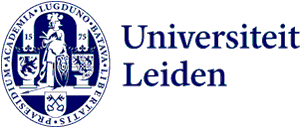
Plant stress increases: New research with bacteria offers hope
Soil that is too wet, or too dry. Or with a lot or few nutrients. Due to climate change, the differences are becoming bigger, and plants must increasingly be able to adapt to survive. How do you make plants more stress-resistant? For this purpose, researchers from Leiden, along with other universities, received a grant of 1.6 million euros.
Bacteria and other microbes help against stress
Bacteria and other microorganisms live inside and outside of plants. As agriculture faces increasing pressure from climate change, these microbiomes can play a crucial role.
‘Microbiomes can help with nutrient absorption, combatting pathogens and insects, and also mitigate other stress factors such as drought and salinity,’ says Victor Carrión. He is the coordinator of the project and works as a researcher at Leiden University and the University of Málaga.
Researcher Salma Balazadeh will lead the project in Leiden and is very excited about being part of this. ‘This will be a strong and impactful collaboration for combating the effect of climate change on plants harnessing microbiome.’
Social relevance at the forefront
The project provides opportunities to collectively optimise the use of microbiomes in agriculture, according to Carríon. ‘This is a great collaboration between universities, research centres, and companies in the agricultural and environmental sectors. It offers the chance to establish a true connection between fundamental research and practical applications for society.’
The grant is awarded to the MicroSOS-project. It project will run until 2028 and comprises a consortium of ten international entities, including academic institutions University of Málaga (coordinator), Leiden University, the Spanish National Research Council (CSIC), Agricultural University of Athens (Greece), University of Tuscia (Italy), Asian Institute of Technology (Thailand), the Dutch Institute of Ecology (The Netherlands), and the companies DeSangosse and Akinao (France) and The Weather Makers (The Netherlands).
